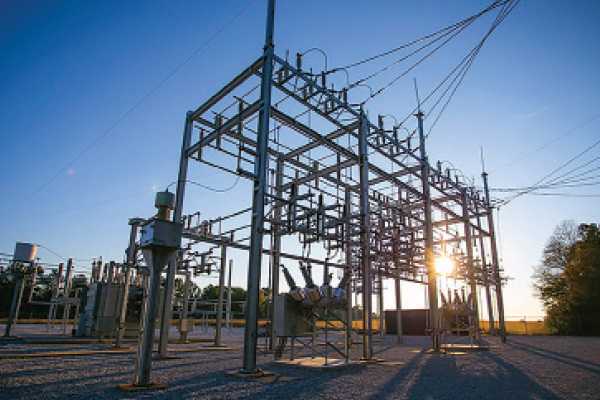BPC on autopilot
Botswana Power Corporation is currently operating without three most senior executive managers on a full time basis thereby exposing the state owned power utility to possible lapses with respect to timely and efficient decision making process.
The current scenario is the least wanted especially given that BPC has been bleeding millions of Pula annually at the expense of the taxpayer who has had to bail it out so as to keep the lights on. As things stand, the power company does not have a substantive Chief Executive Officer after the controversial resignation of former Chief Executive, Stefan Schwartzfischer about a year ago. Cross Kgosidiile, is currently the acting Chief Executive Officer, but holds the position of Chief Finance Officer. This effectively means Kgosidiile spends most time at the CEO’s office on an interim basis, leaving the CFO position almost neglected.
It is not known who has now been appointed acting CFO. Interestingly, it has since been reported that Kgosidiile is joining a government-owned company, although it has not been officially confirmed. In addition BPC is also operating without a Chief Operations Officer (COO) following the sacking of Jonathan Housseini last year. The latter has since successfully challenged the matter in a court of law, in the process stopping BPC from appointing a replacement for the same position. In the meantime, Botswana Guardian understands that, the former BPC top executive has since joined Botswana Post, another government parastatal on the same position. At press time Housseini had scored a decisive victory against the state owned power utility which is currently carrying out massive infrastructure and maintenance for projects such as North West power transmission, which costs P2, 4billion and the maintenance of Morupule A power station.
Its troubled Morupule B is currently under remedial work after defects were found in the plant which was constructed by a Chinese company. As a strategic parastatal, responsible for the country’s generation, transmission and distribution of electricity, can BPC afford to operate without three substantive top officials? BPC Marketing and Communications Manager Dineo Seleke declined to respond to detailed questions regarding the company’s leadership vacuum. She told Botswana Guardian last week that the Corporation is constrained to comment on any leadership changes since nothing has been announced.
She was trying to respond to a question relating to the reported exit of Kgosidiile to join another parastatal. The BPC spokesperson said they are currently concentrating efforts in executing the Masa 2020 strategy. Masa 2020 envisages the BPC as a profitable entity free from reliance on government, operating efficiently and serving its customers. The strategy became necessary as the BPC continued bleeding billions of Pula in annual losses, while operational inefficiencies piled up and services standards plummeted. The Permanent Secretary in the ministry of minerals, energy and green technology Mmetla Masire told this publication he cannot ‘talk’ because he was out of the country on Wednesday while his political boss, minister Lefoko Moagi’s cellphone rang unanswered, as he also appeared to be outside the country.
The Botswana Guardian wanted to know if the ministry is not concerned about the leadership vacuum at BPC. In recent years BPC has been bailed by government while at the same time posting losses on the backdrop of the troubled Morupule B power station which has never produced power totaling 600mw which is the capacity of the P11 billion power plant. According to the BPC annual report total revenue increased by 9 percent to P3.010 billion in 2018, compared to P2.769 billion as at March 2017. The increase in revenue was mainly attributable to the average 12 percent tariff adjustment awarded for the year under review.
Other Operating Income, which incorporates mainly profit on sale of material to Distribution Works Contractors, Consumer Financed Projects recoveries and export of electricity through Southern African Power Pool (SAPP) stood at P157.826 million registering an increase of 14 percent from P138.604 million in the prior year. Last week, Moody’s Investors Service (Moody’s) assigned a Baa2 long-term issuer rating to BPC. This was the first time Moody’s has assigned a rating to BPC. The ratings agency said BPC’s Baa2 issuer rating is underpinned by the expectation that the Government of Botswana will continue to provide timely financial support to the company, as necessary, given the critical role of BPC to the country and its mission to ensure that Botswana has access to electricity, and (2) an assumption that substantially all of BPC’s commercial borrowings will continue to be covered by government guarantees.
Meanwhile, Moody’s said a downgrade of Botswana’s sovereign rating could lead to a downgrade of BPC’s issuer rating. “A downward rating pressure could also occur if there was any uncertainty about the government continuing to provide timely financial support to BPC; the company’s financial profile were to deteriorate; there was a material change in the company’s capital structure (for example, if BPC were to raise unguaranteed debt); or Moody’s assessment of very high support for the company were revised downwards. In addition, severe delays or uncertainty around the remediation programme of Morupule B plant could also put downward pressure on the rating,” said Moody’s.





